Tenants of McGill Rise subdivision share horror stories as council investigates
Former tenants of a Hobart subdivision under investigation by council and a government department say they would lie awake wondering if the roof was “going to come off, or are we going to wake up with the house in pieces around us”. LATEST >>
Tasmania
Don't miss out on the headlines from Tasmania. Followed categories will be added to My News.
FORMER tenants of a greater Hobart subdivision under investigation by council and a government department say they would lie awake at night wondering if the roof was “going to come off, or are we going to wake up with the house in pieces around us.”
As revealed by the Mercury on Saturday, residents of a new Claremont subdivision were forced to move out of their homes after being told their lives were at risk in high rainfall.
Eight out of 22 homes in the McGill Rise development had to be vacated when Glenorchy City Council said an audit deemed them uninhabitable.
Nyssa and April Browne were some of the first tenants to move into the subdivision in mid-2017.
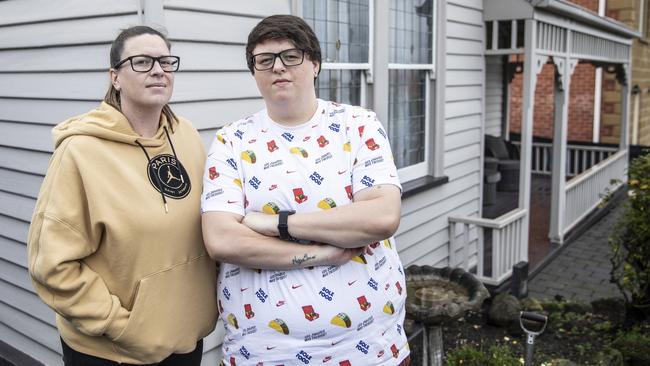
They moved out of the three-bedroom house at No. 7, which they were paying $380 per week for, after their 12 month lease was finished.
“We had issue after issue and the rent was also going to go up — the neighbours who moved in after us said they were paying $420 a week,” Ms Browne said.
“When the weather was bad, we’d lie awake at night going ‘is the roof going to come off or are we going to wake up with the house in pieces around us’.”
A council spokeswoman previously said engineering reports identified there was “an intolerable risk” that embankments for eight properties within the subdivision could collapse in a high rainfall event, “posing a significant threat to life for any occupants of the affected properties”.
It is understood residents vacated were tenants, who have since been rehoused.
The state government’s Consumer, Building and Occupational Services has begun disciplinary action against the building service providers involved in the development.
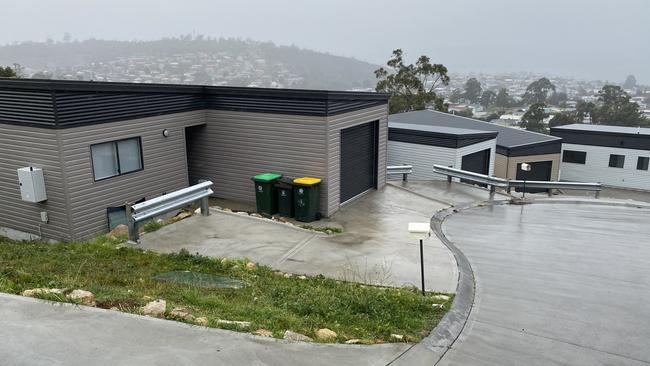
Leaky toilets, mould and mushrooms were just some of the issues former tenants said they faced while living at McGill Rise.
Ms Browne said issues at their property included the heat pump not being connected properly, mushrooms growing in the wardrobe, various leaks and the house moving in the wind.
An email from the property manager to Ms Browne in May 2018 during a severe weather event told her to contact the state emergency services in the event of an “immediate emergency”.
Salina Cotton and her two children rented 23 McGill Rise from about late 2018 while she was having her own home built elsewhere and said she had issues from the outset.
“It was hideous – the oven stopped working and had to be replaced and it took me god knows how long to get that done,” she said.
“There were 73 electrical faults and the toilet leaked continuously. No matter how many times I had the plumber back it would leak right out on the carpet.
“The dishwasher wasn’t plumbed in when I first moved in, it was just shoved in the hole and when I turned it on, it flooded everywhere.
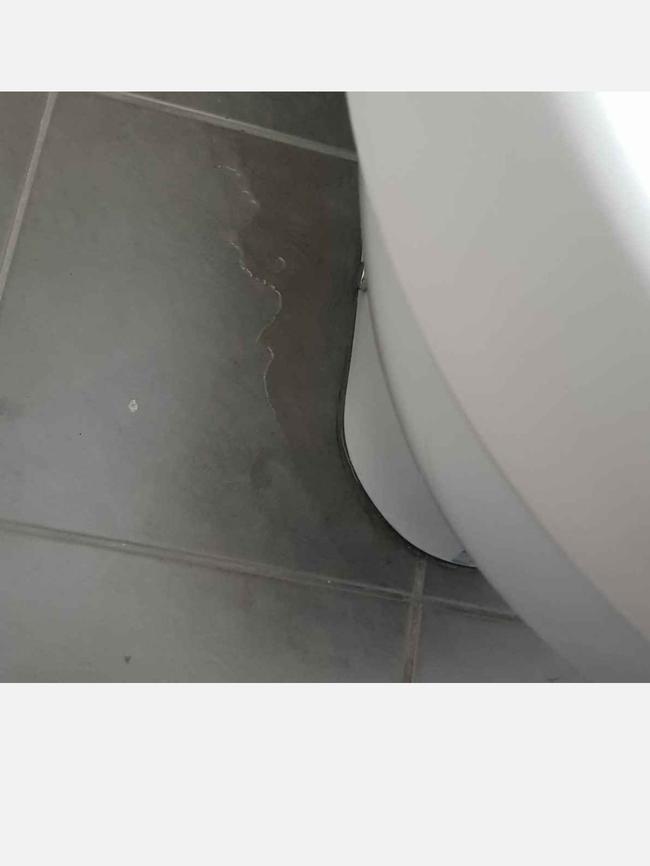
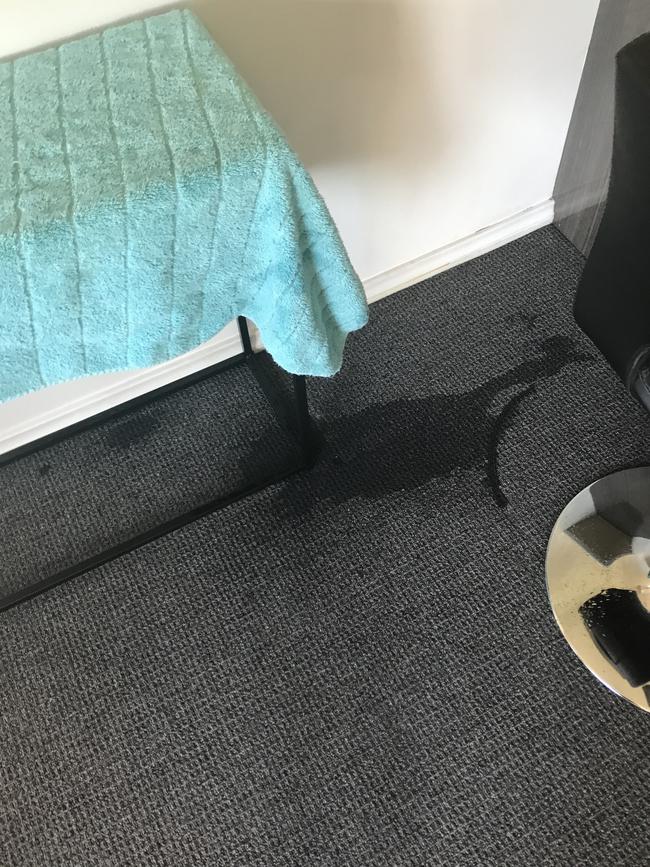
“Most of the doors didn’t close because the whole house didn’t even line up. None of the windows latched so you could stand outside the unit and open them.”
Ms Cotton said being located at the bottom of the subdivision down a steep slope made it difficult for access for emergency services.
“I had to get an ambulance out there when I did my knee in and they had to drive a 4WD into my garage, drive that up the hill and transfer me into the ambulance,” she said.
After 15 months, Ms Cotton said it was “heaven to get out of there.”
“I couldn’t fault the property manager – she tried to fix everything, but she was met with wall after wall with the developers,” she said.
Attempts by the Sunday Tasmanian to contact the developer-builders, Aviation Consolidated Holdings Pty Ltd, were again unsuccessful on Saturday.
What’s a minimum standard?
UNDER the Residential Tenancy Act, landlords cannot provide premises that are not fit for purpose, says Ben Bartl, of the Tenants Union of Tasmania.
“It’s a minimum standard of all residential tenancies that the property is structurally sound and in good repair,” he said.
“If a property isn’t structurally sound and the tenants are required to move out for a period of time through no fault of their own, the onus is on the landlord to provide alternative accommodation.
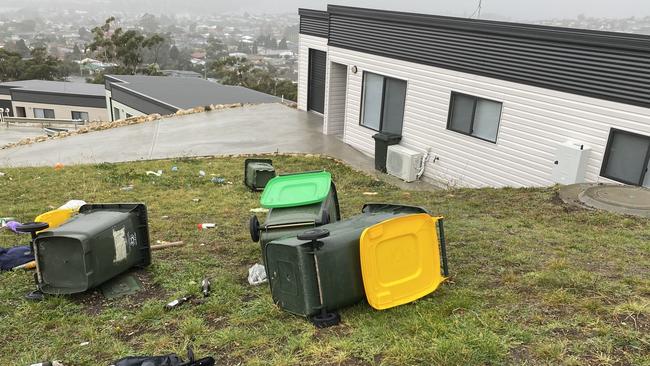
“If repairs need to be carried out and the landlord or real estate agency is refusing to carry them out, tenants can seek an order for repairs through the residential tenancy commissioner who can order the landlord to carry out the repairs.”
Mr Bartl also said tenants having issues with mould could contact their local council’s environmental health officers for a free inspection.
“If they think it’s serious enough, they too have the power to order repairs,” he said.
A state government spokeswoman said the Occupational Licensing Act provided for a range of potential disciplinary outcomes against building service providers when noncompliance is established.
“This can include caution or reprimand, imposition of licence conditions, monetary penalties, suspension, or cancellation and disqualification,” the spokeswoman said.



